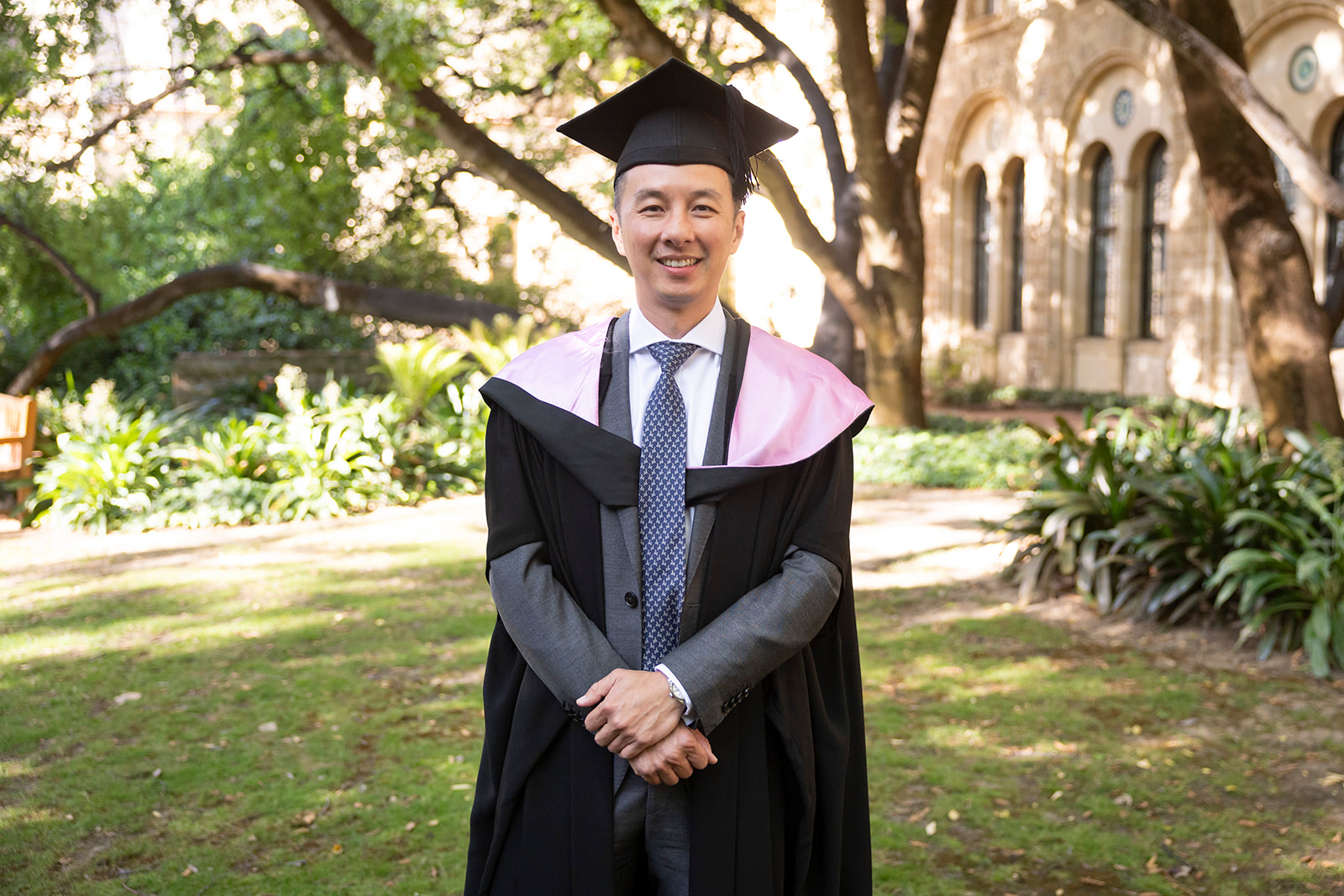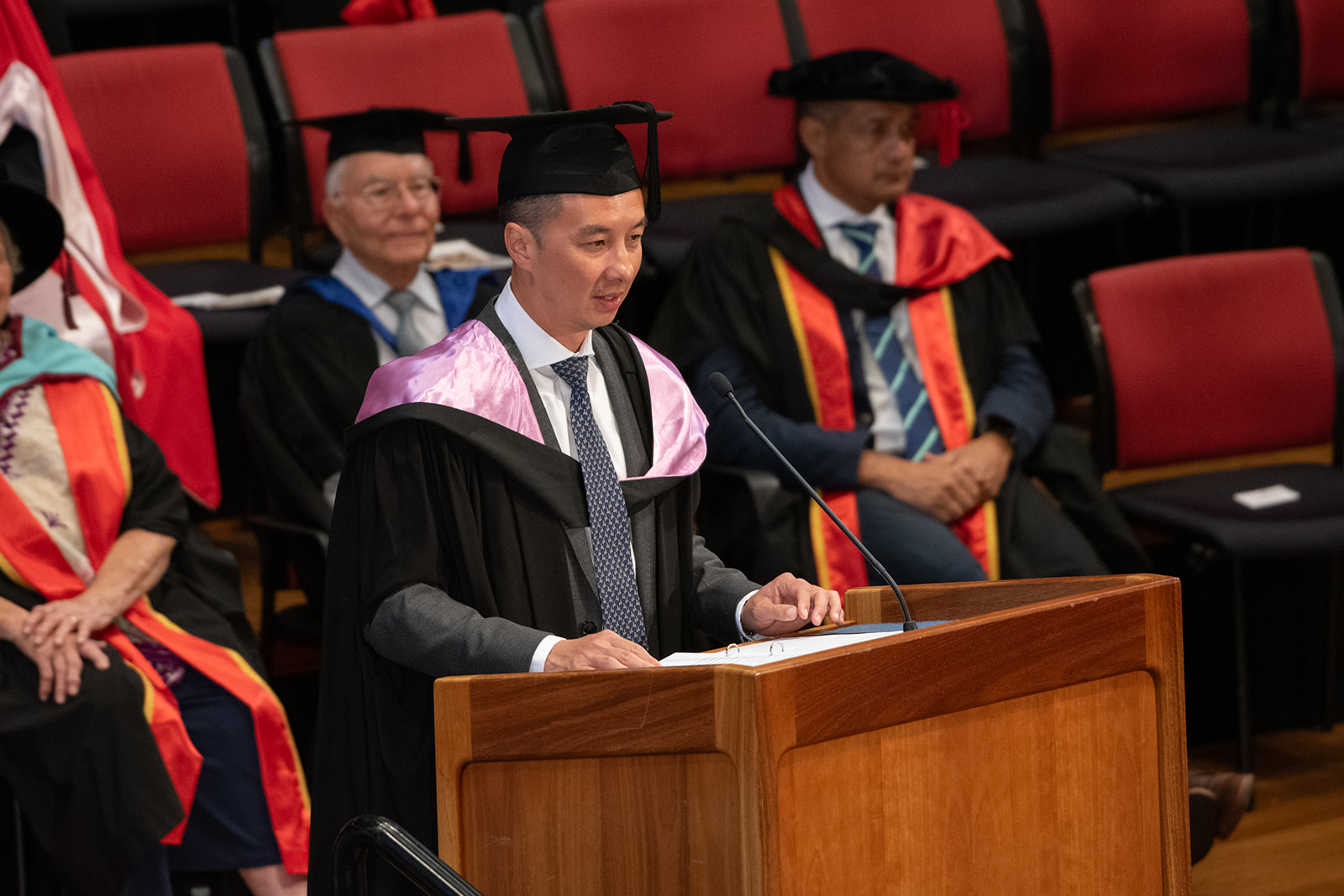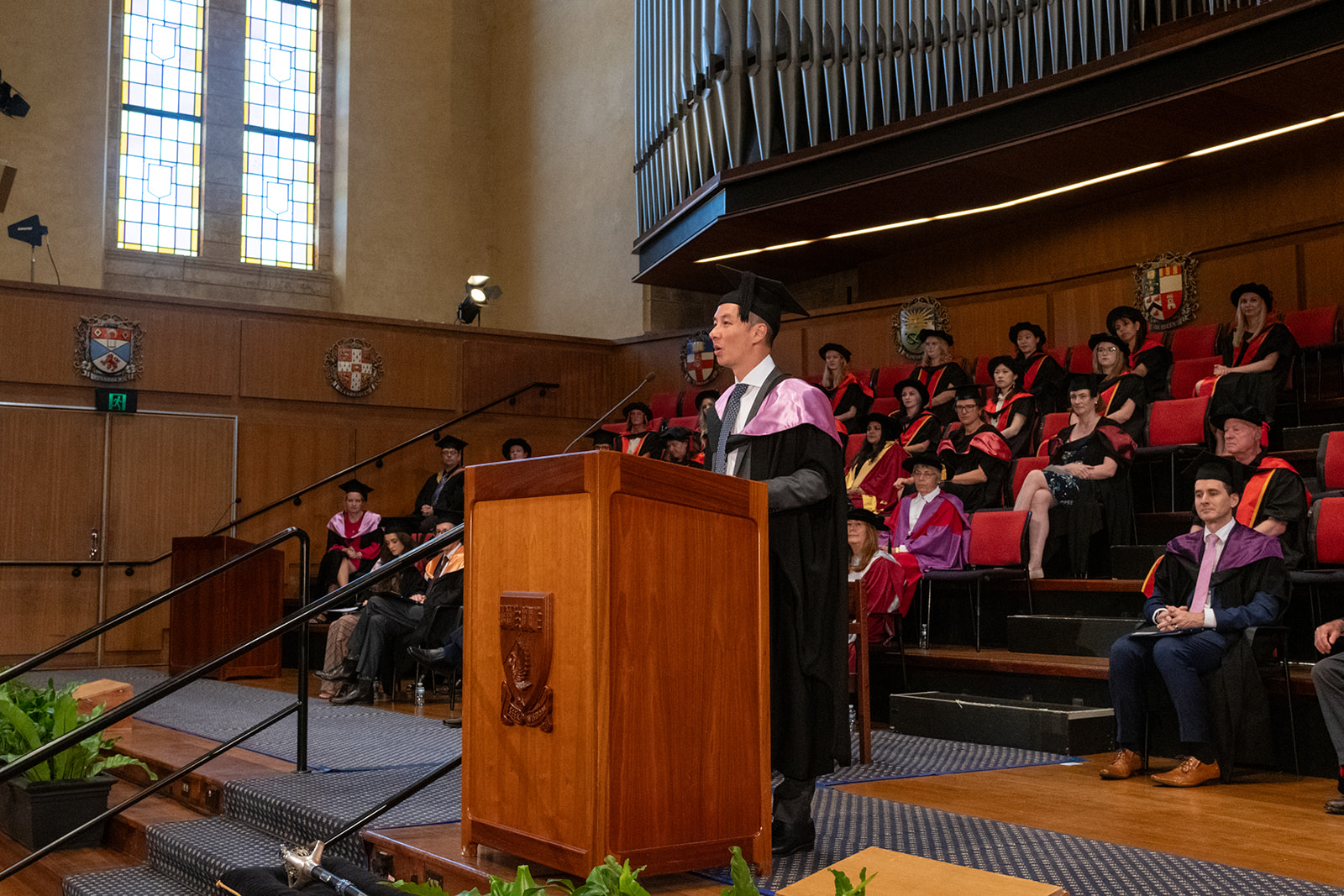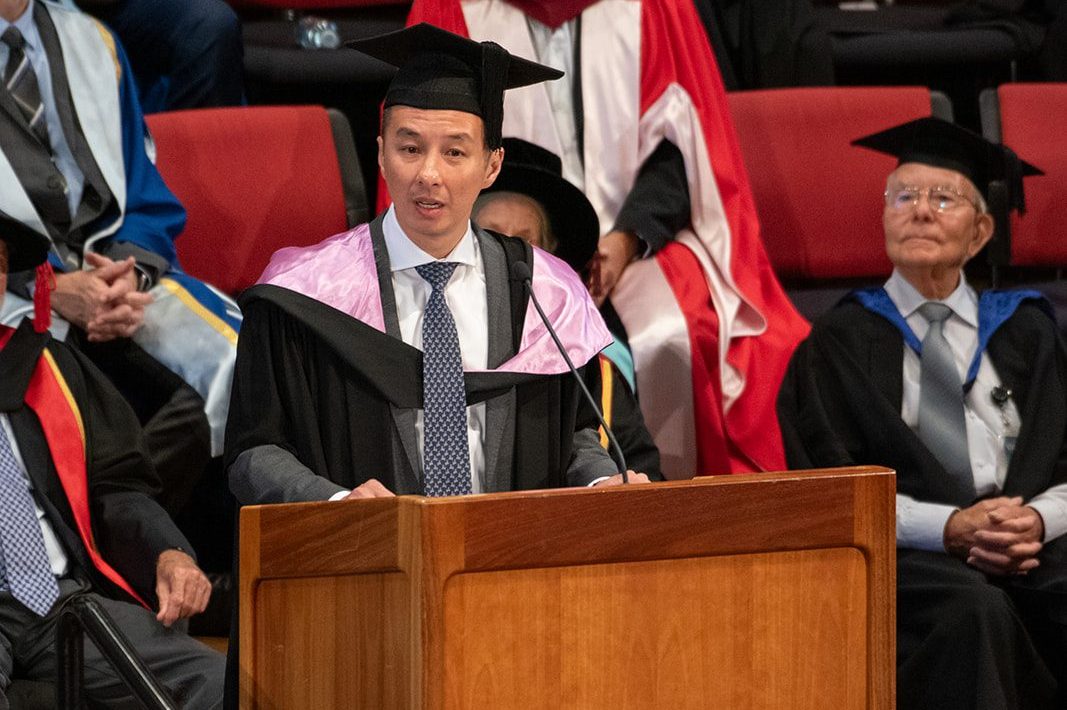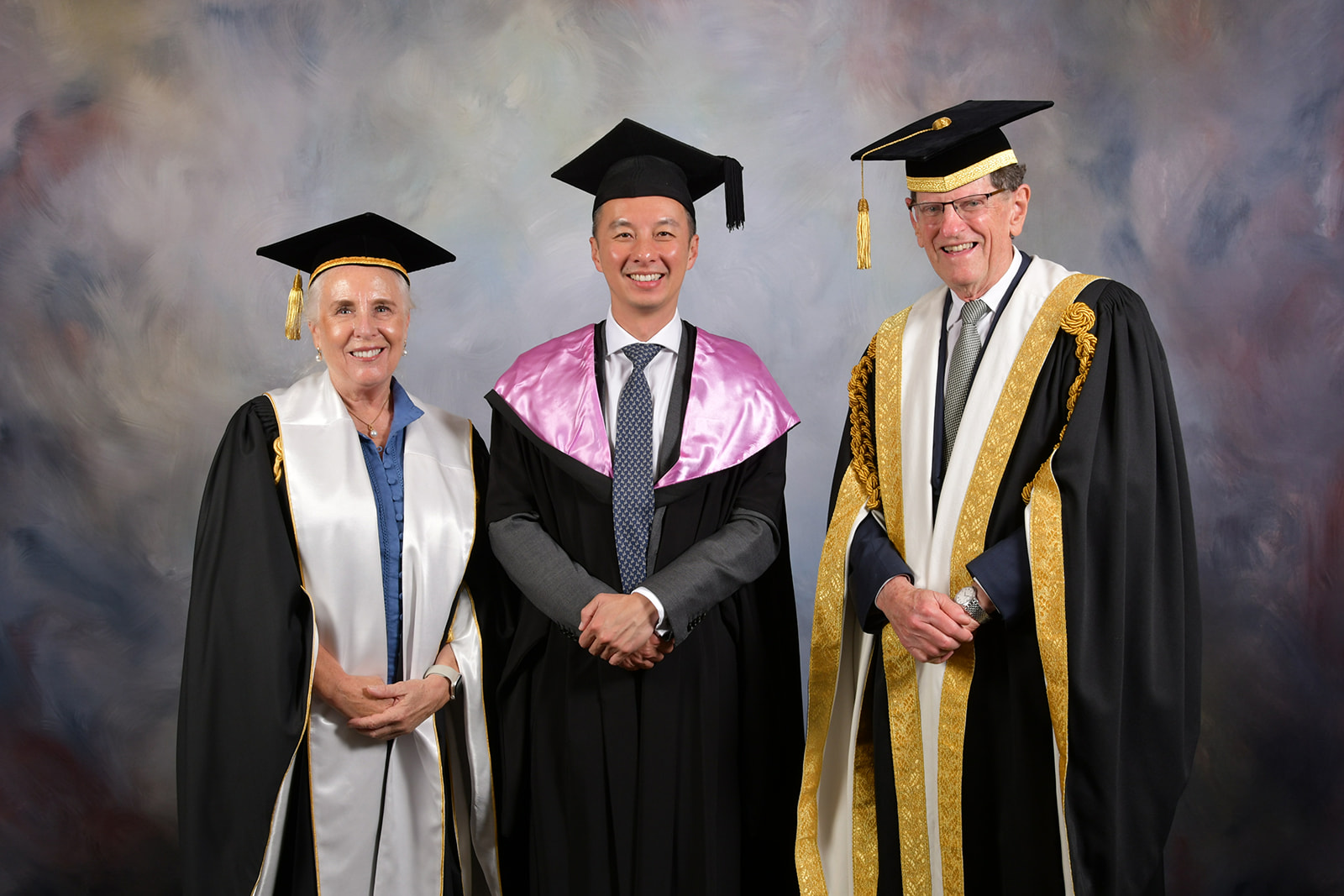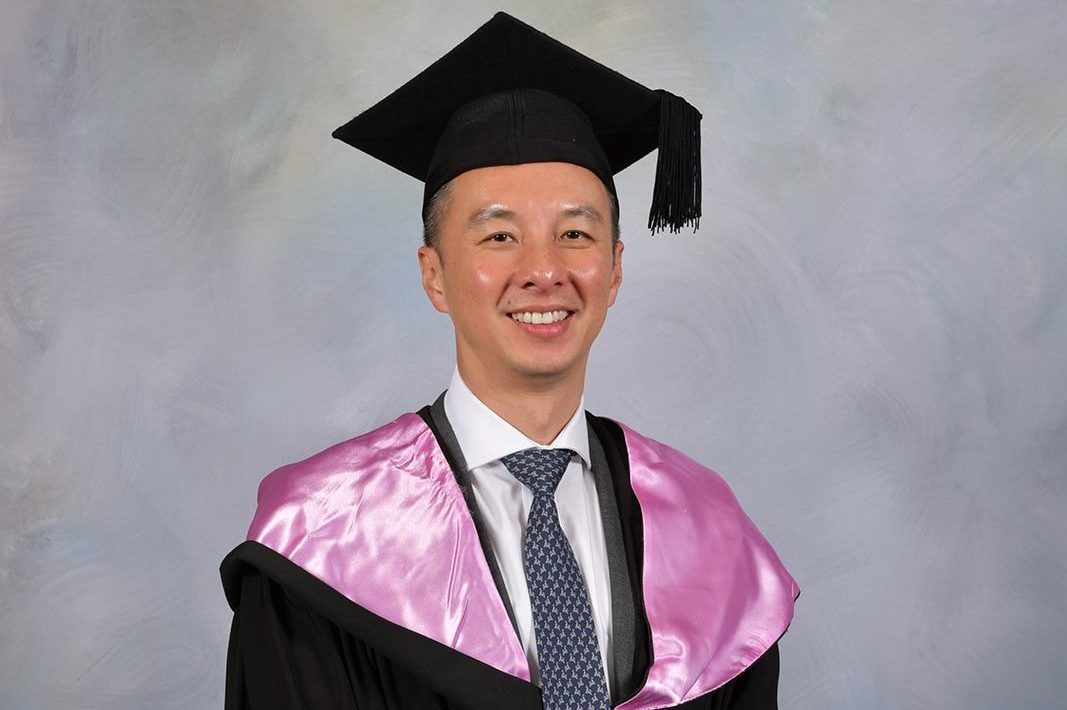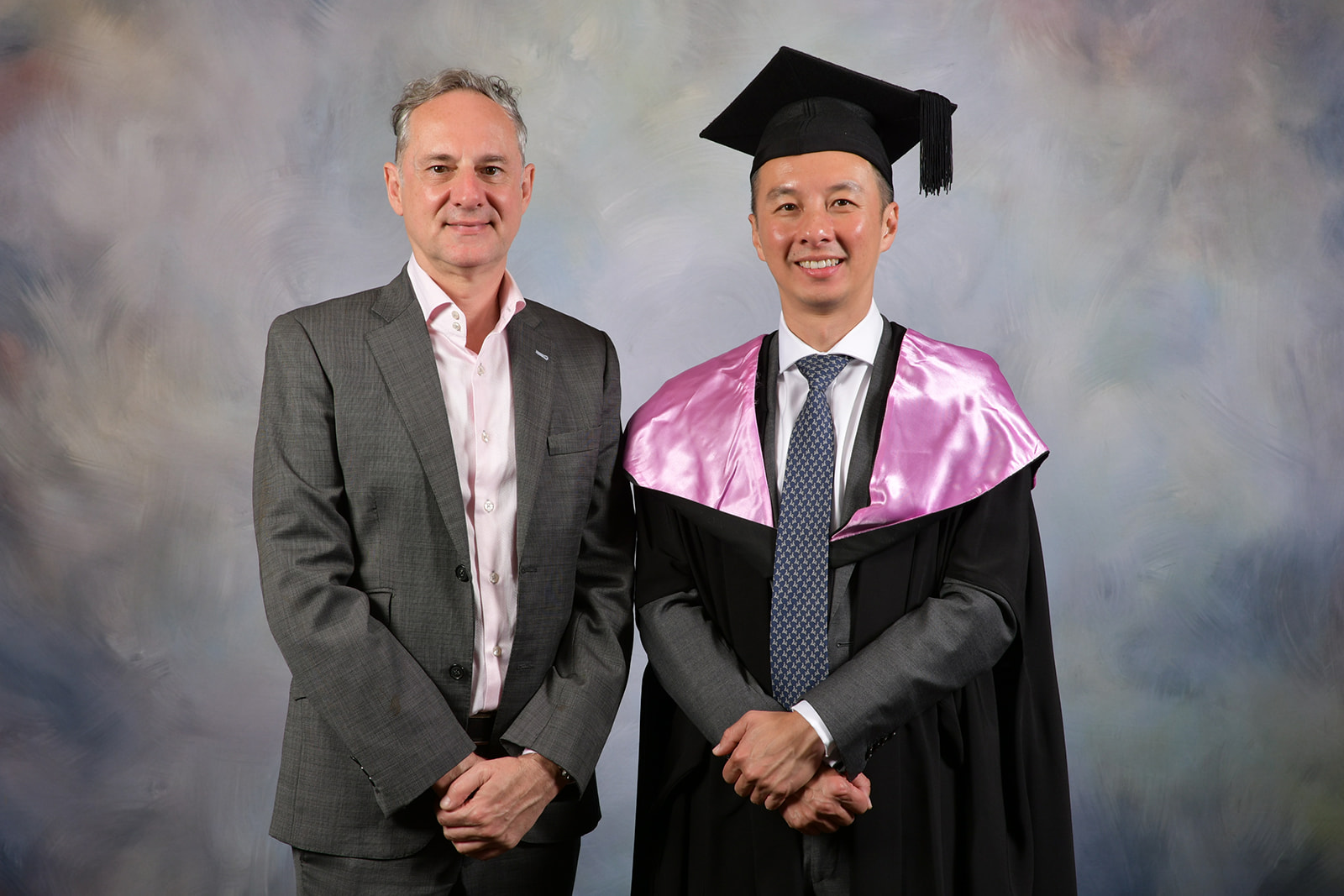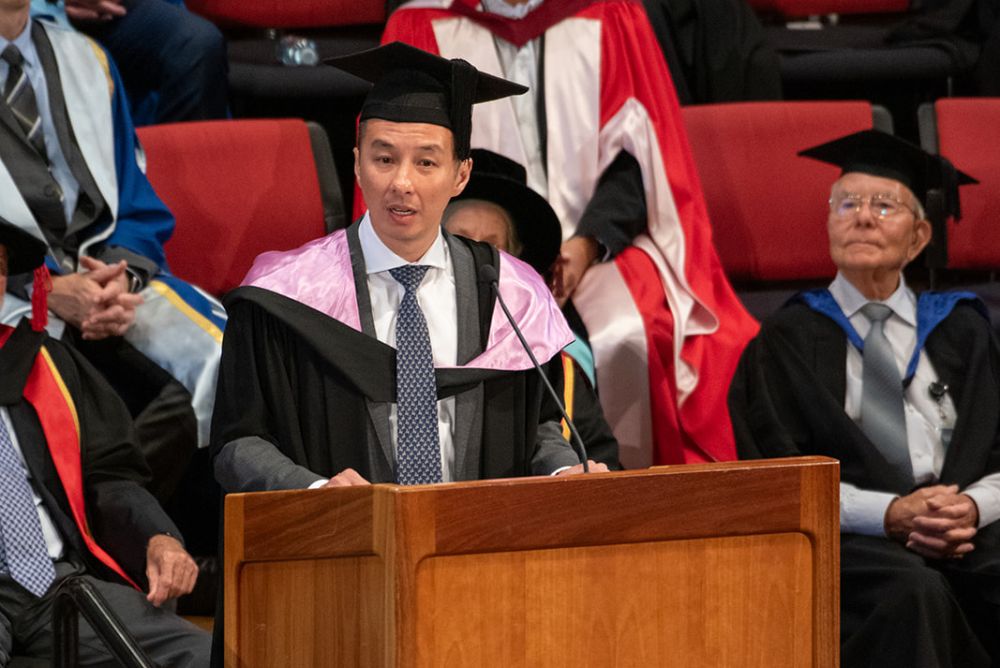

News

Graduation an honour for AMA (WA) CEO
Friday March 28, 2025
The UWA Medical School Graduation Ceremony was a special night for the AMA (WA), with CEO Dr Bennie Ng as the guest speaker. The ceremony took place on 18 December 2024 at Winthrop Hall, with 193 students graduating with a Doctor of Medicine, including 57 with Distinction.
Dr Ng addressed the graduating class with reflections on his own career in medicine and the opportunities a medical degree can provide. In his speech, Dr Ng highlighted three key mindsets — seizing opportunities, adapting to change, and showing gratitude — drawing from his experiences in general practice, hospital reform, and health policy at a national level.
Here is Dr Ng’s speech in full:
“It is an absolute honour to speak at this significant milestone event. I was the first in my family to attend university. My journey began with my parents, both nurses, who took the bold step to migrate to Perth so that my brother and I could access better education. For me, earning a medical degree from this university was one of the greatest opportunities in the world.
Many years ago, I sat exactly where you are now, feeling that same mix of excitement and pride in completing one of the most demanding and prestigious degrees. What I didn’t realise then was the sheer breadth of opportunities this degree offers.
My journey has taken me from general practice in WA, to reforming public hospitals in Hong Kong, and eventually serving as a senior adviser and head of social policy to the Prime Minister of Australia in Canberra. Today, I want to share with you three mindsets that helped me make the most of the freedom and choice this degree will give you.
The first mindset is ‘Seize the opportunity’.
Medical careers are not an orderly queue, nor is our health system even close to being run perfectly. There are opportunities everywhere to make a difference – whether it’s reforming models of care, tackling workforce challenges, or simply providing the best possible care to your patients.
Many of you would envision a lifelong career as a dedicated frontline doctor. I thought so too. But after completing my internship and residency at Fremantle Hospital, opportunities I never expected began appearing.
I went from representing WA GP registrars to becoming a medical educator, holding two board directorships, and later taking on a job as CEO of a national medical body – all while training as a GP. Then came the unexpected: a call from the Health Minister’s office in Canberra asking me to become a health policy advisor.
I had doubts. I wanted to address the problems I saw in general practice and Medicare, and make a difference at a system level. But I’d never studied political science nor joined a political party – the only parties I knew were those in Northbridge! But as I learnt from my parents, the opportunities most worth taking are often the hardest. You have to be bold to avoid regrets.
The second mindset is ‘Adapt your course’.
Many of you may have a clear plan for your career, and that’s great. But life often has other ideas, and external events can shift your trajectory. That’s okay. Listen to yourself, explore what you truly enjoy, and be willing to embrace the unexpected.
People often ask me what I studied to get to this role. The answer might surprise you. I didn’t have an MBA when I became a CEO for the first time. I didn’t have a fellowship in medical administration when I led clinical service planning in Hong Kong. I didn’t have governance qualifications when I first became a board director.
Even when I was headed for a career in hospital administration, I got another call – this time directly from the Prime Minister, asking me to return to Parliament House. My responsibilities extended far beyond health to include aged care, disability, welfare and Indigenous affairs.
At first, I felt underqualified. But here’s the truth: doctors are trained to learn quickly, diagnose problems and manage complex issues. These skills are transferable and highly valued in settings far beyond clinics and hospitals.
The third mindset is ‘Show your gratitude’.
Like elite sports, building a career is a team effort. You wouldn’t be here today without the sacrifices and support of family, friends and loved ones. Treasure and build on these relationships. They’ll be there to celebrate your wins, guide you when you are at the crossroads, and lift you up when things are tough.
While earning my medical degree was a moment of immense pride, serving as CEO of the AMA (WA) – our State’s peak medical body – has been an even greater privilege. My father passed away five years ago, and his loss was a turning point that brought me back to Perth for this role. I remain forever grateful for my parents’ courage and sacrifice that made my journey possible.
So, graduands, as you stand at the cusp of your next chapter, I leave you with this:
It’s easy to sit back and be a critic. As junior doctors, you will see human error, questionable decisions, systems in need of reform, and avoidable poor outcomes. But making changes and solving these challenges takes courage. You need to be bold – to seize opportunities, adapt your course, and show gratitude for those around you.
As Theodore Roosevelt once said: “It is not the critic who counts, but the one in the arena; whose face is marred by dust and sweat and blood; who strives valiantly… and who, at the worst, if he fails, at least fails while daring greatly.”
You have the power to write your own story and define success on your own terms. I welcome you as colleagues and fellow members of this extraordinary profession. Congratulations, and thank you.”

